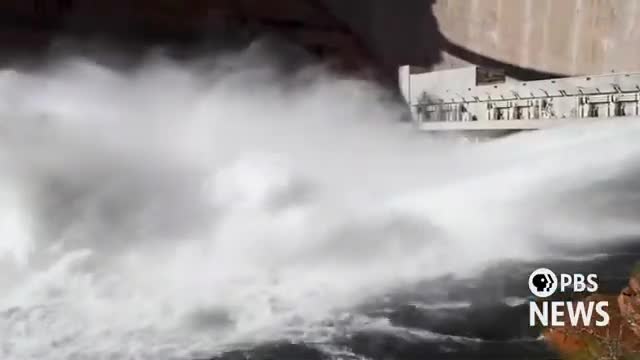Water crisis deepens as Colorado River faces environmental collapse

This article was created by AI summarizing key points discussed. AI makes mistakes, so for full details and context, please refer to the video of the full meeting. Please report any errors so we can fix them. Report an error »

High flow experiments on the Colorado River have yielded some success, yet the river delta remains one of the most significant environmental disasters, suffering from decades of over-extraction. Once a vibrant wetland teeming with wildlife, the delta has been left parched since the 1980s, as the river rarely reaches the Sea of Cortez. Recent collaborative efforts between the U.S. and Mexico to release short pulses of water have provided a temporary reprieve, but experts warn that these measures are merely a stopgap.
During a recent government meeting, Karen Kwan, associate project director at the Colorado River Sustainability Campaign, addressed the pressing need for a paradigm shift in water management. She highlighted that the Colorado River Compact of 1922 did not account for the ecological needs of aquatic life, a significant oversight given the changing values of communities today. Kwan emphasized the importance of integrating environmental stewardship into water management practices, stating that the health of the river ecosystem is crucial for sustaining both wildlife and human communities.
Kwan pointed out that while there are numerous alarms signaling ecological distress—such as the drying delta and the environmental hazards posed by the Salton Sea—there is still hope for restoration. She advocated for maintaining healthy forests and wetlands to support the river's headwaters and groundwater systems. The conversation also touched on the need for a more meaningful inclusion of environmental considerations in negotiations over water rights, which have become increasingly contentious among states.
Bruce Babbitt, former Arizona governor and U.S. Interior Secretary, echoed these sentiments, noting the complexities of water ownership in a federal system where states claim rights to the river's resources. As states grapple with dwindling supplies, Babbitt warned that without cooperation and a shared vision for sustainable management, conflicts will only escalate.
Both Kwan and Babbitt expressed cautious optimism about the future of the Colorado River, emphasizing the necessity of collaboration among stakeholders, including conservation groups and tribal communities, to ensure the river's health and longevity. The discussions underscored a critical moment for the Colorado River, as stakeholders navigate the challenges of water scarcity while striving to restore and protect this vital resource.
During a recent government meeting, Karen Kwan, associate project director at the Colorado River Sustainability Campaign, addressed the pressing need for a paradigm shift in water management. She highlighted that the Colorado River Compact of 1922 did not account for the ecological needs of aquatic life, a significant oversight given the changing values of communities today. Kwan emphasized the importance of integrating environmental stewardship into water management practices, stating that the health of the river ecosystem is crucial for sustaining both wildlife and human communities.
Kwan pointed out that while there are numerous alarms signaling ecological distress—such as the drying delta and the environmental hazards posed by the Salton Sea—there is still hope for restoration. She advocated for maintaining healthy forests and wetlands to support the river's headwaters and groundwater systems. The conversation also touched on the need for a more meaningful inclusion of environmental considerations in negotiations over water rights, which have become increasingly contentious among states.
Bruce Babbitt, former Arizona governor and U.S. Interior Secretary, echoed these sentiments, noting the complexities of water ownership in a federal system where states claim rights to the river's resources. As states grapple with dwindling supplies, Babbitt warned that without cooperation and a shared vision for sustainable management, conflicts will only escalate.
Both Kwan and Babbitt expressed cautious optimism about the future of the Colorado River, emphasizing the necessity of collaboration among stakeholders, including conservation groups and tribal communities, to ensure the river's health and longevity. The discussions underscored a critical moment for the Colorado River, as stakeholders navigate the challenges of water scarcity while striving to restore and protect this vital resource.
View full meeting
This article is based on a recent meeting—watch the full video and explore the complete transcript for deeper insights into the discussion.
View full meeting